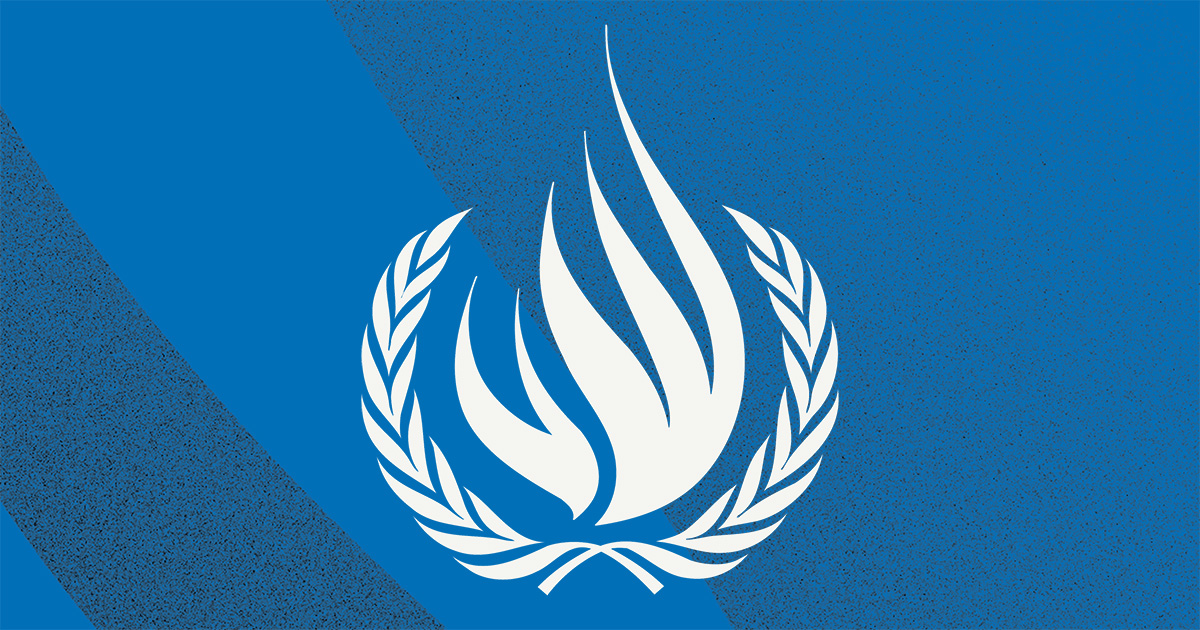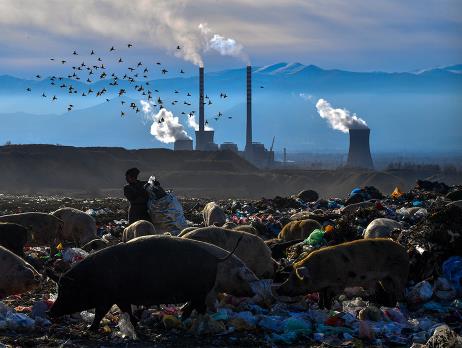
GABORONE (12 October 2023) – The UN Special Rapporteur on human rights and the environment praised Botswana for being a world leader in biodiversity conservation with more than 40% of its land protected, but warned that some people are being left behind when it comes to access to safe and sufficient water, adequate sanitation, clean air, and a fair share of benefits from mining, tourism and wildlife.
“Vulnerable populations, children, women, Indigenous Peoples and rural communities are among the most affected and are bearing the brunt of the negative impacts”, said David Boyd, the Special Rapporteur, in his end of mission statement as he concluded a 9-day visit at the invitation of the Government. “Their human rights are not being respected, protected and fulfilled.”
“As an upper middle-income State, Botswana has the laws, policies, and resources to ensure that everyone enjoys their rights to water, sanitation, and a clean, healthy and sustainable environment”, he explained. “However, there is an implementation gap that must be urgently closed by applying a human rights-based approach in the context of all water, environment and climate actions. Such an approach clarifies a State’s obligations, prioritizes the rights of the most vulnerable and marginalized groups, catalyzes action, and promotes accountability”, Boyd said.
“Botswana has the potential to become a global solar superpower, shifting to 100% renewable electricity and exporting clean energy across southern Africa,” the Special Rapporteur highlighted. “This can be achieved by using a human-rights-based approach to strengthen the regulatory framework and attract a major infusion of investment.”
The expert noted that the climate crisis is hitting Botswana hard. Already hot and dry by nature, rising temperatures and declining rainfall are exacerbating water scarcity, food insecurity and risks related to vector-borne diseases.
“This crisis truly jeopardizes the full enjoyment of a range of human rights in Botswana”, Boyd said.
He stressed that Botswana is committed to do its part to address the crisis, but it should not have to pay for solving a problem it did not create.
“Despite producing only 0.02 percent of global greenhouse gas emissions, Botswana has an ambitious climate strategy that highlights renewable energy and gender equity”, the Special Rapporteur said. “Wealthy nations have moral and legal obligations to mobilize finance in the form of grants, not loans, to pay for climate action and the transition to renewable energy in Botswana”, he added.
“Civil society plays a key role in sparking action to ensure everyone enjoys their right to a healthy environment. Unfortunately, the Special Rapporteur heard concerns about lack of access to environmental information, lack of meaningful participation in decision-making, lack of access to justice and shrinking civic space. He urged the Government to support civil society organizations, human rights defenders and youth as they carry out their vital human rights and environmental work” Boyd stated.
Boyd urged the government and other actors to unite in recognizing the right to healthy environment in the Constitution and to take the actions required to fulfil this fundamental right for everyone in Botswana, so that no-one is left behind.
The Special Rapporteur will present his report to the UN Human Rights Council in March 2024.
ENDS
David R. Boyd (Canada) was appointed Special Rapporteur on human rights and the environment on 1 August 2018. He is an associate professor of law, policy, and sustainability at the University of British Columbia.
Follow the Special Rapporteur on Twitter: @SREnvironment
The Special Rapporteurs are part of what is known as the Special Procedures of the Human Rights Council. Special Procedures, the largest body of independent experts in the UN Human Rights system, is the general name of the Council"s independent fact-finding and monitoring mechanisms that address either specific country situations or thematic issues in all parts of the world. Special Procedures" experts work on a voluntary basis; they are not UN staff and do not receive a salary for their work. They are independent from any government or organization and serve in their individual capacity.
For more information and media requests, please contact: Ms Frederique Bourque (frederique.bourque@un.org).
Follow news related to the UN’s independent human rights experts on Twitter: @UN_SPExperts.
Concerned about the world we live in?
Then STAND UP for someone’s rights today.
#Standup4humanrights
and visit the web page at http://www.standup4humanrights.org









